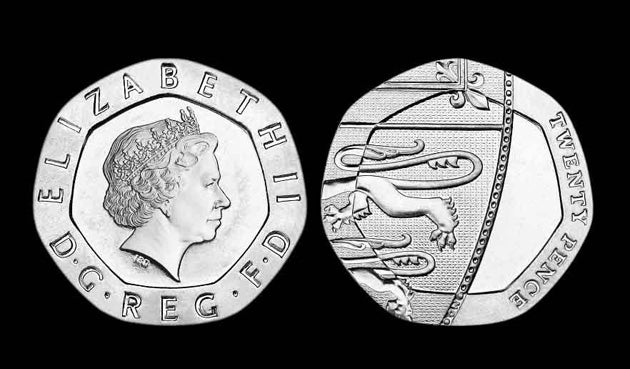Why 20p in the hand may be worth £300
Firm offers £50 for each coin with mistake but dealers say value will only rise further

Your support helps us to tell the story
From reproductive rights to climate change to Big Tech, The Independent is on the ground when the story is developing. Whether it's investigating the financials of Elon Musk's pro-Trump PAC or producing our latest documentary, 'The A Word', which shines a light on the American women fighting for reproductive rights, we know how important it is to parse out the facts from the messaging.
At such a critical moment in US history, we need reporters on the ground. Your donation allows us to keep sending journalists to speak to both sides of the story.
The Independent is trusted by Americans across the entire political spectrum. And unlike many other quality news outlets, we choose not to lock Americans out of our reporting and analysis with paywalls. We believe quality journalism should be available to everyone, paid for by those who can afford it.
Your support makes all the difference.It was an offer which had people across the country rummaging in their pockets for loose change: a specialist dealer in rare coins willing to give £50 to anyone who sent in a 20p piece minted without a date.
But it turns out that the seemingly generous offer, which had Britons scouring their wallets and purses in the hope of finding one of the elusive coins, is one that savvy consumers should refuse.
Several specialist coin dealers told The Independent yesterday that the 20p pieces could be worth up to £300 within five or 10 years, especially if they were kept in good condition and turn out to be particularly scarce.
The £50 offer was made by a privately owned company called the London Mint Office, which has no connection to the Royal Mint.
The minting mistake occurred last year, when the 20p piece was being redesigned. The new coin was supposed to shift the date from the tails side to the heads side but for one batch the Royal Mint accidentally used an old version of the Queen's head, which did not have the year printed on it. The result was a coin with mismatched sides, known as a "mule". Between 50,000 and 200,000 of the faulty 20p pieces are thought to be in circulation.
Richard Anderson, a specialist dealer in modern coins, said the 20p coins could be worth up to £300 within a decade.
"It's quite rare that a mule comes up, and every known mule that there is over the course of the years always fetches high money," he said. "So it's a bit of a punt, a bit of a speculation on their part. If anybody finds one, they should just keep hold of them, because they will appreciate."
Chris Perkins, a coin specialist and author of the book Check Your Change, said he first became aware of the faulty 20p pieces at the end of 2008, but that they had largely escaped the attention of the general public until now. He owns two of the coins himself, for which he paid between £30 and £40 each, but added that their future value depended "on the hype" surrounding them.
"What I expect the London Mint Company will do is hype it up massively and then start knocking them out for £100 or £150," he said. "Poor old ladies who don't know much about it will be ones that buy them."
The London Mint Company are not the only people trying to make a fast buck on the rare coins. Yesterday, the internet auction site eBay was flooded with listings for the coins. One was already worth £190 after attracting 34 bids, and one example could be purchased immediately for £500.
Nick Hart of the London Mint Company said he believed £50 was a "good starting price" for the coins, but that the company would consider upping its offer if the sellers were unhappy. "It's in everyone's interests that we get the price absolutely right," he said.
The Royal Mint said it could not comment on the future value of the coins, adding that this was a matter for collectors and specialist dealers. The 20p "mules" are legal tender, a spokesman said.
The last time an undated coin entered circulation was in 1672, during the reign of Charles II.
Join our commenting forum
Join thought-provoking conversations, follow other Independent readers and see their replies
Comments